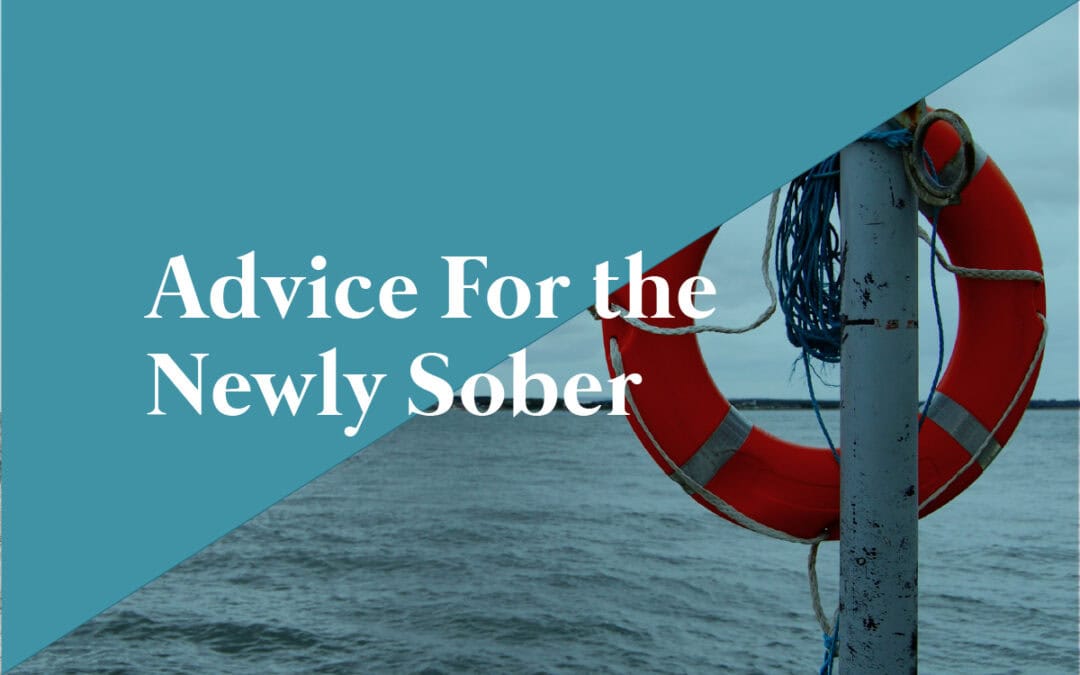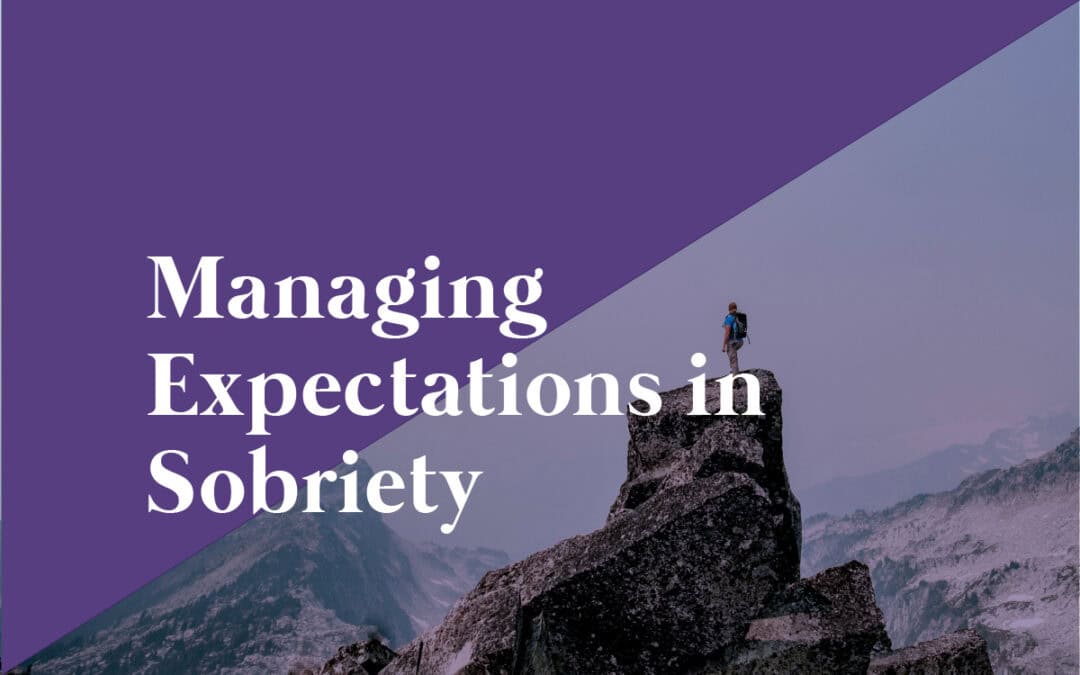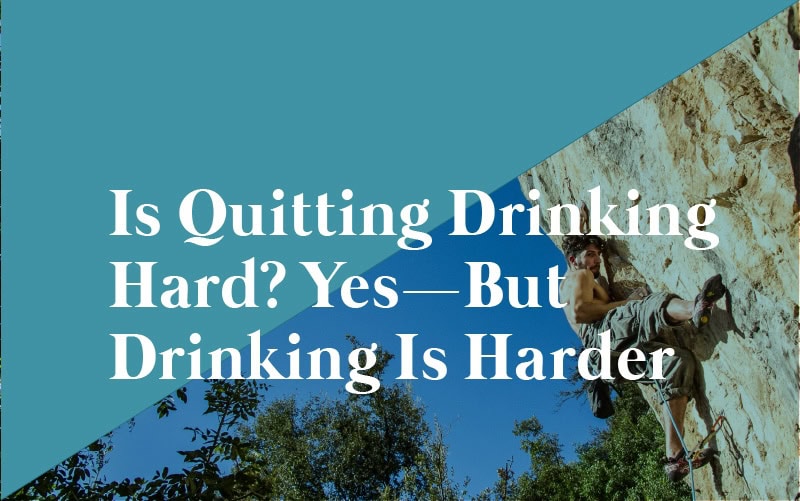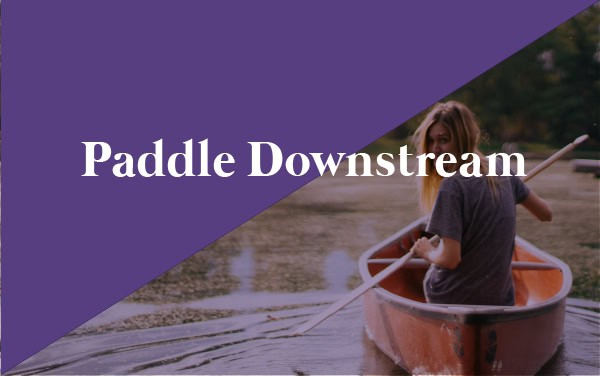
by Kerri MacFarlane | Jul 15, 2025 | Alcohol Free, Blog, Early Sobriety, Helpful Tips
Ego and Addiction Recovery: What’s the Real Danger?
When it comes to ego and addiction recovery, the real danger isn’t always what we expect. It’s not alcohol, sugar, artificial intelligence, or even nuclear weapons. According to Episode 486 of the Recovery Elevator podcast, the true threat lies much closer to home: our own ego.
The Ego and Addiction Recovery: Humanity’s Most Powerful Disruptor
From Buddhist teachings on Dukkha to the Christian concept of original sin, the ego has long been recognized as a source of internal conflict and suffering. In modern recovery language, it’s often called the “thinking mind” or “inner critic.”
So why is ego so dangerous today? Because it’s insatiable. It constantly seeks validation, comfort, distraction—and for many of us, that includes alcohol. The pursuit of more, more, more leads us to numb, isolate, and escape.
Understanding this makes it clear how ego and addiction recovery are connected: the ego thrives in denial and disconnection, while recovery invites humility and truth.
Addiction as the Ego’s Kryptonite: A Turning Point in Recovery
Here’s the paradox: while ego may drive addiction, addiction also becomes the very thing that exposes the ego’s destructiveness.
If you’ve hit rock bottom or faced repeated relapses, you’ve likely heard yourself say: “I can’t do this anymore.” That voice—the one whispering beneath the chaos—might just be your true self, beginning to break through the mental chatter.
Ego and addiction recovery share a unique relationship. When addiction pushes you to the edge, it creates an opening for awareness. As Michael Singer puts it in The Untethered Soul: “You are not the voice in your head—you are the one who hears it.”
How Ego and Addiction Recovery Reveal Our Shared Humanity
One of the most humbling truths in addiction recovery is this: it levels the playing field. In recovery spaces, doctors sit beside musicians, teachers beside former drug dealers. No one is better than anyone else in the room.
Why? Because addiction breaks the illusion of superiority. It reveals the inflated self-image for what it is. When you’re stripped down by struggle, you become open to connection, to surrender, and to healing.
And that’s why ego and addiction recovery work in tension—and in harmony. As the ego dissolves, room is made for peace.
Still on Day 1? Understanding Ego and the Recovery Journey
If you’re reading this and feel like you’re stuck on a hamster wheel of Day 1s, we see you.
Even if you’re still drinking, tuning into this podcast or reading this post is a powerful signal: you’ve chosen Life. That’s Door #2.
Breaking free from alcohol and the grip of the ego is rarely clean or easy. But every time you reach out for support, choose awareness, or show up in your community, you’re moving forward. One moment at a time.
Ask the universe for guidance. Ask for help. And when you do, pay attention to what shows up. That’s ego and addiction recovery in action.
Final Thoughts: Ego, Awareness, and Freedom in Addiction Recovery
As Paul shares in Episode 486, the real danger is not outside of us—it’s within. But that’s also where the healing begins.
Awareness dismantles the ego. Connection quiets the inner critic. Recovery breaks the illusion that we have to do it all alone.
Whether you’re on Day 1 or Day 1000, remember: you are not the thoughts telling you to drink. You are the one witnessing them. And that awareness is your superpower.
🎧 Listen to the Full Episode:
RE 486: The Most Dangerous Thing on the Planet
👀 Explore More:
Check out our post on advice for the newly sober for tips on what helps early in the journey.

by Kerri MacFarlane | Jun 15, 2025 | Alcohol Free, Blog, Early Sobriety, Helpful Tips
Advice for the Newly Sober: Insights from the Recovery Elevator Community
Embarking on a journey of sobriety is a brave and life-changing decision. Whether you’re just starting out or thinking about taking that first step, finding the right advice for the newly sober can make a huge difference. That’s why we asked our amazing Recovery Elevator community to share their best tips and words of encouragement for those just starting out.
If you’re newly alcohol-free or sober-curious, keep reading…this list is full of wisdom, compassion, and practical steps you can take today.
1. Take It One Moment at a Time
“If forever is too much to handle, quit for today. If today is too much, quit for an hour… You can do it.”
One of the most powerful pieces of advice for the newly sober is to avoid overwhelming yourself with the idea of “forever.” Sobriety is built one moment at a time, and that’s more than enough.
2. Trust the Urge to Quit: Early Advice for the Newly Sober
“If you’re thinking about quitting, you already know it’s time.”
Your intuition is one of your greatest assets. If something feels off with your relationship to alcohol, trust that feeling. This is advice for the newly sober that applies before you even take that first step.
3. Never Quit Quitting
“Recovery is a daily practice. If you slip, start again. One more day sober is better than none.”
No matter how many “Day Ones” you’ve had, each one counts. One of the most common pieces of advice is to keep showing up…even imperfectly.
4. Find People Who Get It
“Don’t do it alone. Community makes everything easier.”
Having a sober support network is crucial. Whether it’s a program, a group like Café RE, or just a few trusted friends, surround yourself with people who understand the journey.
5. Rebuild Your Routine with Intention
“Replace your drinking rituals with healthier ones. Create new routines you look forward to.”
This is incredibly helpful advice for the newly sober. Fill your time with positive habits, especially during the times you used to drink.
6. Be Gentle with Your Mind and Body
“Eat the food. Take the nap. Be gentle with yourself.”
Your body and mind are healing. Many people said the best advice for the newly sober was to treat early sobriety as a time to rest and reset. Sleep more. Eat well. Go easy on yourself.
7. Remember Your “Why”
“Write down all the reasons you want to quit. Look at them daily.”
Keeping your motivations front and center is one of the most powerful tools in sobriety. This advice can help you stay grounded and focused.
8. Let Other’s Stories Light Your Path
“Sobriety podcasts helped me realize I wasn’t alone.”
Listening to other people’s experiences helps normalize your own. Check out Recovery Elevator Episode 482 for more community-driven advice for the newly sober.
9. Grace Over Perfection
“Progress is not linear. Celebrate every small win.”
One of the most heartwarming pieces of advice for the newly sober is this: you don’t have to get it right every day. Just keep going.
10. Say It Out Loud, And Mean It
“Tell your people you’re done drinking. Make it real.”
Going public with your intention to quit…whatever that looks like for you…can help solidify your commitment.
Final Thoughts: Keep This Advice for the Newly Sober Close
Whether you’re on Day 1 or Day 100, the most important tips for early sobriety is this: you’re not alone. There is a vibrant, supportive community ready to walk with you…one moment, one choice, one day at a time.
Looking for more resources? Explore Café RE…a private, supportive space for people looking to live alcohol-free. And don’t forget to subscribe to the Recovery Elevator Podcast for more stories, tools, and inspiration each week.

by Kerri MacFarlane | May 15, 2025 | Blog, Early Sobriety, Expectations, Helpful Tips, Resources

by Kerri MacFarlane | Apr 15, 2025 | Alcohol Free, Blog, Early Sobriety, Expectations, Helpful Tips
Is Quitting Drinking Hard? Yes—But Drinking Is Harder
When faced with the question, “Is quitting drinking hard?” the honest answer is—yes, it can be. But if you have a problematic relationship with alcohol, the challenges of quitting pale in comparison to the difficulties of continuing down the path of self-destruction that drinking often leads to.
In this post, we’ll explore why quitting drinking can feel hard and why it’s even harder to keep drinking. Stick around to discover the brighter side of sobriety and the immense rewards that come with it.
Why Quitting Drinking Can Be Hard
- Physical Detox
When you stop drinking, your body needs to detoxify from alcohol. This process can be physically uncomfortable, especially in the first 72 hours. Symptoms like night sweats, brain fog, and stomach issues are common. In severe cases, quitting alcohol cold turkey can even be life-threatening. If you’re concerned, consult a healthcare provider before quitting.
- Breaking Old Habits
Alcohol is often deeply ingrained in daily routines. Letting go of these patterns and forming new habits takes effort and time. For example, if your typical “witching hour” is 5–6 PM, you might need to find a new activity, like hitting the gym or joining a pickleball league.
- Lack of a Support System
Starting an alcohol-free journey can feel isolating, especially if your social circle revolves around drinking. Online sobriety communities and peer support groups can help you build essential connections for long-term success.
- A World Built Around Alcohol
From social events to advertisements, alcohol is everywhere. Living in a “drunk world” makes it harder to escape its influence, especially in the early days of sobriety.
- Facing Boredom
Many of us have been conditioned to avoid boredom at all costs. However, boredom is a natural and even healthy state. Learning to sit with it instead of escaping into drinking can be an adjustment.
Why Continuing to Drink Is Even Harder
While quitting drinking has its challenges, continuing to drink when you have a problem is exponentially harder. Here’s why:
- Alcoholism Progresses
Alcohol problems don’t resolve themselves; they get worse over time. Continuing to drink leads to physical, emotional, and relational destruction. This is what some call a “slow suicide.”
- Emotional and Physical Toll
The stress of trying to manage drinking—apologizing for drunken behavior, covering up mistakes, and dealing with hangovers—is exhausting. Living with addiction means carrying a heavier burden each day.
- Impact on Loved Ones
Drinking doesn’t just affect you; it affects everyone around you. Addiction erodes relationships and can create lasting pain for those you care about.
Why Sobriety Is Worth It
Here’s the good news: once you move past the initial hurdles, sobriety brings rewards that far outweigh the challenges.
- Physical and Mental Clarity
After 14–21 days, the fog begins to lift. You’ll feel more energized and present, as if waking up after years of sleepwalking.
- Self-Care at Its Best
Quitting drinking is an act of radical self-love. It feels good to prioritize your well-being and treat yourself with kindness.
- A Calmer, More Stable Life
No more waking up to check embarrassing texts or struggling through work with a hangover. Your mornings become brighter, your finances improve, and life feels more manageable.
- Rebalanced Dopamine Levels
Alcohol creates an unhealthy dopamine imbalance, giving short bursts of pleasure followed by long stretches of discomfort. Sobriety allows your brain to rebalance naturally, leading to sustainable happiness without the harsh trade-offs.
- Living Life at Face Value
Without alcohol, you experience life as it is—raw, real, and beautiful. This authenticity allows you to build a life that doesn’t require escape or numbing.
Final Thoughts
Yes, quitting drinking can be hard. But continuing to drink when alcohol has become a problem is far harder. Sobriety offers a chance to reclaim your life, find lasting joy, and be the best version of yourself—for you and those around you.
The journey to an alcohol-free life is worth every step. The question is: Which hard will you choose?
Are you ready to paddle downstream and embrace the magic of sobriety? Let us know in the comments!
🎧 For more on this topic, check out Episode 476 of the Recovery Elevator podcast, hosted by Paul Churchill.

by RE Helper | Mar 15, 2025 | Alcohol Free, Blog, Helpful Tips, Holidays
Today’s blog entry is from Steve Ellis. Steve is a member of Café RE.
Accepting Life on Life’s Terms
By: Steve Ellis
Accepting Life on Life’s Terms, January 19,2025
The Excitement of a Long-Awaited Trip
Sometimes, life has its own way of reminding us that no matter how much we plan, control is an illusion. This was one of those days. We woke up this morning, bright-eyed and excited, knowing the wife and I were taking a trip to Alaska from our home in Pennsylvania. The anticipation was palpable—we had been looking forward to this adventure for many months after Heather won the trip at a work event. Out trip package included Dog Sledding, two nights at one resort and another two nights at a ski resort near Anchorage with a Northern Lights excursion. What sealed the deal for us was two free round trip airline tickets were included in the package on Alaska Airlines from Philadelphia to Anchorage and back.
Weather Worries and an Optimistic Start
But as anyone who’s traveled knows, plans often change. And today, our travel story took a turn that no one could have predicted.
It all started with the weather. The forecast had warned us that conditions might be challenging because snow was predicted in our area calling for 3”-6” between 10am and 10pm typical weather prediction, but we figured we’d manage. After all, we were heading to Alaska, right? A place known for its unpredictable elements by its own right. But little did we know, the weather wouldn’t be the biggest hurdle of the day. Timing—good old timing—would take center stage. We left early enough to give us plenty of cushion for traffic and the elements. We left out house at 1:30pm for a 6:30pm flight.
Airport Delays and a Long Wait
We learned there was only one flight a day from Philly to Seattle connecting on to Alaska. However, the timing of our trip turned out to be much more than we bargained for. The check-in counter didn’t open until 4 p.m., two full hours later than we had anticipated. At least we weren’t in a rush, right? So we decided to grab a bite to eat. With 90 minutes to kill, we found a nearby place, hoping to relax before the flight.
After a satisfying meal without any alcohol and we had to sit at the bar, we returned to the airport with a little extra time on our hands. We checked in, handed over our bags, and received our boarding passes without a hitch. Feeling somewhat relieved, we proceeded through TSA and now found ourselves with another 90 minutes to kill before boarding.
We found a place to sit away from any bars, and noise. To pass the time I continued watching the Eagles game on my phone and Heather took the opportunity to nap.— We were in good spirits, knowing that, despite any delays we would remain calm and positive, we’d soon be boarding a plane headed for Alaska.
A Shocking Announcement at the Gate
Or so we thought.
After a few more rounds of game-watching and napping, we made our way to the gate. As we settled in, we got an unexpected announcement. Agent from the counter, would the Heather Ellis party come see me at the counter. We assumed it was a routine check-in, perhaps even an upgrade. But instead, we were told the most frustrating news: Agent, I’m sorry but your tickets aren’t valid.
Confusion and Frustration
How is that even possible?
Alaska Airlines had issued our boarding passes, taken our bags, and confirmed our flight. We had chosen our seats, ordered food, and were ready to go. How could our tickets suddenly be invalid? The agent didn’t have much of an explanation. She did try to help by contacting reservations. Despite our confusion, we were told we couldn’t board. They suggested we buy new tickets, but the problem was—our tickets were already purchased as part of a travel package. So, the idea of buying more tickets wasn’t just impractical; it was unnecessary.
After a lot of back-and-forth with the agent and even some conversations with reservations, we presented all our documents from the travel agent and vouchers ect. we came to a heartbreaking realization: there was no getting on that flight. We had no choice but to go home and, of course, this led to another round of frustration as we had to make our way to baggage claim.
The Journey Home in Disappointment
Another 45 minutes passed before we were reunited with our bags. Thank goodness for AirTags, or we might still be waiting to track them down. Once we got our luggage, it was time to figure out what to do next. Parking fees didn’t help the mood. We had already spent $28 for 7 hours of parking $65.00 for lunch and now we had to face the inevitable—driving home in snowy weather through traffic filled with possible drunk Eagles fans. Good times, right?
A Silver Lining in Sobriety
But as we finally got home safe, a bit angry and very disappointed, something dawned on me. I looked over at Heather, and I said, “You know, things happen for a reason. I mean, think about it—there was a time when we might have handled this very differently. Four and half years ago, we would’ve gone from terminal to terminal, hitting the bars, drinking away the time, pre-gaming for the flight. We would’ve made the situation far worse. I know I would have lost my shit at the agent, caused a huge embarrassing scene, might of gotten arrested for drunk disorderly conduct or worse. We would have had to drive home in the snow angry, drunk and yelling at each other. It would not have been a good.”
And that’s when I realized: in a way, today was a victory for my sobriety, I stayed calm, I kept it together. I didn’t get thrown off by the chaos, and because of that, I was still able to drive home safely. It was a true testament on how far I’ve come on my journey and how I’ve learned to except live on life’s terms.
Looking Ahead
We will get our chance to go to Alaska eventually.
Safe travels, everyone—may your journeys be smoother than ours!
Steve Ellis/ Blue/PA
RESOURCES you may find helpful.

by Odette Cressler | Nov 15, 2024 | Blog, Early Sobriety, Healing, Helpful Tips
Which way are you paddling?

I was listening to an audio book recently, The Astonishing Power of Emotions, that introduced an analogy I wanted to share with you all.
Imagine there is a stream of well-being. Imagine that you show up to the stream with your canoe and you get in. Once you are in, you have two choices, you are either paddling upstream or downstream.
Going upstream requires you to hold on tightly to the oars. It requires you to paddle as hard as you can.
Going downstream requires you to actually stop trying, in fact: you can even let go of the oars, grab a bag of spicy chili mango, and enjoy the view.
The more you go with the flow, the more you allow for the stream of well-being to work for you.
Alright, try not to overthink this, stay with me and let’s apply it to sobriety.
Imagine the stream is your alcohol-free journey. You want to finally get rid of this toxic relationship you have with booze and you are willing to do whatever it takes.
When you are paddling upstream, you are working hard, going to meetings, checking in with your community, not drinking… and that is all amazing. But, what you are also doing, is sometimes getting frustrated because things aren’t going the way you wanted them. “Isn’t life without alcohol supposed to be better? Why am I still having cravings? I shouldn’t be feeling this way. This is hard. I can’t do this. My friends and family don’t support me.”
Anyone felt this way before?
The contrast of this, is paddling downstream. And this is a choice. Yes we have to engage in our attempts, exercise our physical agency to do the things we need to do, like: going to meetings, checking in with your community and not drinking. But how can we practice letting go of the oars and allowing the magic of sobriety to happen to us? When you paddle downstream, you may have negative thoughts and negative feelings – but you deliberately choose to recognize them and then diminish them. For example: you are upset that your friend who knows you are attempting sobriety keeps inviting you to a bar. “Doesn’t he get it? Is that what a good friend would do?” These thoughts are upstream thoughts. You can detect the and do the best that you can to turn your canoe downstream.
How do to do this? Choose a thought that brings more relief than the thought you are already having. Yes my feelings are hurt, yes I am disappointed at my friend. But how can I feel better about the situation vs worse? Maybe you can choose to think: he does not know he is hurting my feelings and perhaps he is struggling since he misses his drinking buddy. Whatever thought you choose to have doesn’t have to be the solution to the problem or the absolute truth, it should simply bring you some sort of relief vs fuel your negative emotion.
Thoughts that fuel your negative emotions (which will inevitably happen to all of us) are upstream thoughts. And thoughts that fuel your positive or neutral emotions are downstream thoughts.
I am not trying to promote toxic positivity, the overwhelming feelings that we experience while on this journey are A LOT. I do want to highlight how much power we have over them though. You can 100% make yourself feel better or feel worse, at any given moment, with the thoughts that you choose. Don’t add more weight to the backpack of sobriety. Focus on feeling good, you are doing something AMAZING for yourself. Keep reminding yourself of that. What you focus on expands.
Who wants to try paddling downstream with me?
Always rooting for you, RE!
xoxo
Odette









